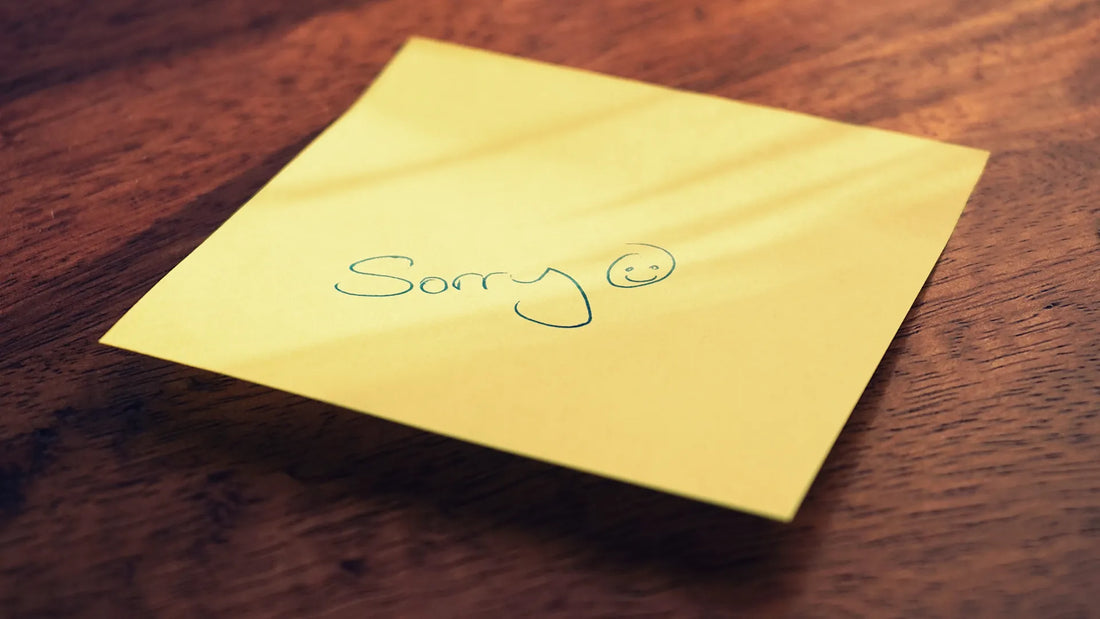
The Power of "I'm Sorry": What Dr. Seuss Can Teach Us About Apology and Growth
Theresa HubbardSometimes I wonder if we understand just how powerful "I'm sorry" can be—not just the words, but the vulnerability behind them. In many cultures today, saying sorry is about more than guilt or politeness. Saying "I'm sorry" is newer in our expectations of repair in a relationship. It has become part of the language of healing over the last few decades. And while not everyone speaks that language the same way, we are seeing more people, especially those in the public eye, being asked to be accountable, to name the harm they've done. It's not about perfection; it's about repair.
Childhood Stories and Their Lasting Impact
"Oh, the Places You'll Go" by Dr. Seuss has been a book that I often use in therapy and one that my children grew up hearing. This book is more about life's journey, but it includes important messages about facing the unknown, dealing with setbacks, and continuing forward even when things are hard. It also speaks to resilience and emotional bravery.
I grew up loving his books—those wild rhymes and strange creatures made the world feel both magical and manageable.
But as an adult, and as someone who has spent years exploring how childhood experiences shape us, I had to take a deeper look after seeing a recent post about Dr. Seuss.
When Growth Happens Without Accountability
Theodor Geisel, the man behind the stories, initially created work that included racist imagery and cultural stereotypes. It was harmful, and the impact was widespread, with his rhymes making it appear more acceptable due to the tone in which they were delivered.
What's striking, and potentially inspiring for some, is that as he grew older, his stories began to change. "The Sneetches" and "Horton Hears a Who!" show more compassion, more awareness. And yet, through all of that evolution, he never publicly apologized for his earlier work.
And that lack of a direct public apology made me curious. When did we start saying "I'm sorry"? When did it become important to us as a culture in the United States, in particular, and potentially other countries?
Theodor once said during a 1976 interview that he cringed when looking back at those older images.
I get that. I've had moments of cringing, too! Cringing isn't the same as accountability. I am not saying I do it well all the time, I don't, this blog is about increasing my own awareness, too!
How Children Process the Stories We Share
When we write for children, shaping the stories they'll hold in their hearts for years, we carry a profound responsibility. Kids don't have the same filters we do, their brains do not process information the same way, and things are more concrete.
They absorb it all: the good, the bad, the beautiful, the biased. And books? We read them to our children over and over again. They echo.
So, when we find something in those echoes that catches our attention, even the littlest bit, we could ask ourselves: What life stories do I still carry around from that book?
Apology Across Cultures: More Than Just Words
Different cultures have different expectations of an apology. In some, an apology is deeply spiritual. In others, it's about action, not words. But around the world, there is a growing recognition that harm, especially to the vulnerable, deserves to be acknowledged. Not to shame. But to heal.
That's the part that sticks with me. Not as a clinician, not as a podcaster, but as someone who's spent a lifetime trying to better understand what it means to love well. To speak with intention. To own our impact.
The Missing Apology and What It Could Have Meant
Dr. Seuss's later work matters. His evolution matters. But so does the apology that never came. Especially because his audience was children—children who deserved more than a shift in tone. They deserved to hear:
"I'm sorry," he could have said, "for the pictures I drew,
Which painted some people in ways that aren't true.
I've listened, I've learned, and I see a new way—
To write with more kindness, with each word I say."
Growth Without Shame: Moving Forward Together
And that's where we are now. I don't believe that we have to cancel the past, the past teaches us, too. We need to understand the growth process to learn from it. Not to attempt to project an image that we should get it all right all the time, that only reinforces shame and perfectionism.
We can name what we missed. We can do better. Whether we're parents, teachers, artists, or just fellow humans walking each other home—we can show the next generation not just how to change, but how to own the places where we didn't get it right. That's where trust begins.
Strengthening Your Relationship Through Accountability
What moments in your own life might be calling for an "I'm sorry"? And where might you need to extend grace to yourself as you learn and grow? The journey of accountability isn't about shame—it's about creating space for healing, both for ourselves and for others.
Take Your Relationship Skills Further
If you've been reflecting on how apology and accountability show up in your own relationships, you're already taking an important step toward healthier connections. Our '10 Essential Skills to Build Stronger and Healthier Relationships' course builds on these reflections, offering practical tools to navigate difficult conversations, practice meaningful apologies, and foster relationships based on mutual respect and understanding.
Through expert guidance and interactive exercises, you'll learn not only how to apologize effectively but also how to create a relationship where honest accountability becomes a strength, not a source of shame. Discover how to transform your relationships by exploring our course today.
Sign Up For Our Relationships Course